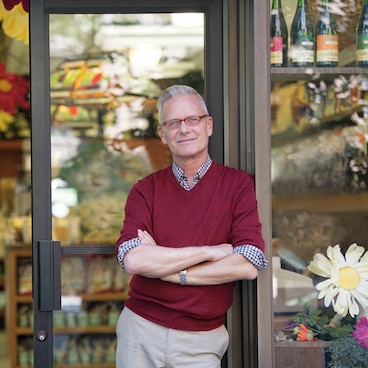
He who dies with the most toys, wins. Malcolm Forbes made the adage famous, but he certainly wasn’t alone in seeing the accumulation of material possessions as the ultimate measure of success. Yet the notion of wealth is transforming. The Charles Schwab Modern Wealth Survey 2023 reveals that 70% of Americans view wealth as enjoying experiences, while only 30% said it’s defined by owning nice things. Forget the fancy cars, big homes, luxury watches, or the ultra-rare book collection. Americans are opting to spend their money on dinner at the hot new restaurant, watching wildlife on a safari, or scoring Taylor Swift tickets.

“Experiences give our lives meaning, whether it’s a dinner with friends or going on vacation,” says Peggy Loo, Ph.D., a psychologist and director of Manhattan Therapy Collective in New York City. “Not only are experiences a potential source of enjoyment, they’re also opportunities to learn about yourself, test your assumptions, connect with others, heal, and find your place in the world.”
Getting beyond stuff
While there’s no single reason for this shift in thinking—and behavior—the pandemic and changing societal values are at least partly responsible, according to Peggy. Many people are reexamining the idea of constantly buying new things to replace old ones—and are instead putting the focus on collecting memories.
As the pandemic eased, Peggy saw patients overbook their social calendars and make ambitious travel plans. While she suspects part of the motivation was to “make up for lost time,” she suspects there’s also a growing desire to spend fewer hours online and more time in the physical world.
Nina Ries is one of those who has shifted her investment strategy. The La Cañada, California, real estate attorney drives a 7-year-old car, spends little money on fashion, and often goes to the library rather than buying books.
“We live in a society where it’s incredibly easy to accumulate stuff and wind up with a lot of things you really don’t need or want,” Nina says. “It may be fun to buy something—but after a few minutes or a few days, the novelty wears off, and you’re left with something you don’t really care about.”
Instead, Nina leans into experiences like glassblowing classes, cooking lessons, and soapmaking workshops. She also organizes an annual trip over a long weekend with 150 friends and colleagues who all enjoy cultural attractions and food tours. In May 2023, for example, they traveled to Chicago to visit restaurants and learn about the city’s rich history and architecture.
“We ate everything from Thai street food and Central American tamales to Middle Eastern falafel pitas and Portuguese custard tarts,” she says. “We learned about the region’s immigration history while enjoying the social aspects of being together.”
Setting a new course
The shift in mindset may also require a rethink of budgeting, saving, and investing. The good news? Reordering your priorities can lead to remarkable outcomes.
With some solid upfront planning, Jeff Kelety, a resident of Port Townsend, Washington, was able to adopt a more experiential lifestyle. A former manager for a telecom company, he and his wife have spent decades engaging in interesting and stimulating activities like kayaking and building model airplanes for Jeff and fabric arts for Deb. They both have routinely sought out volunteer work as well. These days, they regularly take a 32-foot wooden trawler out to sea.
“We’re not just close to nature—we’re in nature,” Jeff says. “We see whales, dolphins, bears, and eagles up close. We hear wolves howl at night. We see spectacular fjords, mountains, and waterfalls. It’s incredibly peaceful and satisfying.”
Their lifestyle didn’t just happen: They’ve kept the same vehicles—a restored 1967 Volkswagen Beetle and a 1991 VW Vanagon—for nearly three decades. They rarely buy jewelry, furniture, and similar items. Deb mostly shops for her clothes at secondhand stores. And Jeff does his own renovation and maintenance projects around their house.
The well-thought-out strategy made it possible for the couple to retire before they turned 60. And they did it without sacrificing their long-term financial goals or the way they wanted to live. A simpler lifestyle built around moments and memories “has been quite rewarding,” Jeff says.
In the tradeoff between time and money, which choice usually leads to greater happiness?
Check out our podcast, Choiceology with Katy Milkman, as her guests look at a way to frame how you spend your time and money that may help you lead a happier life.
Listen now to How You Spend It: With Guests Joshua Fields Millburn & Cassie Mogilner Holmes



